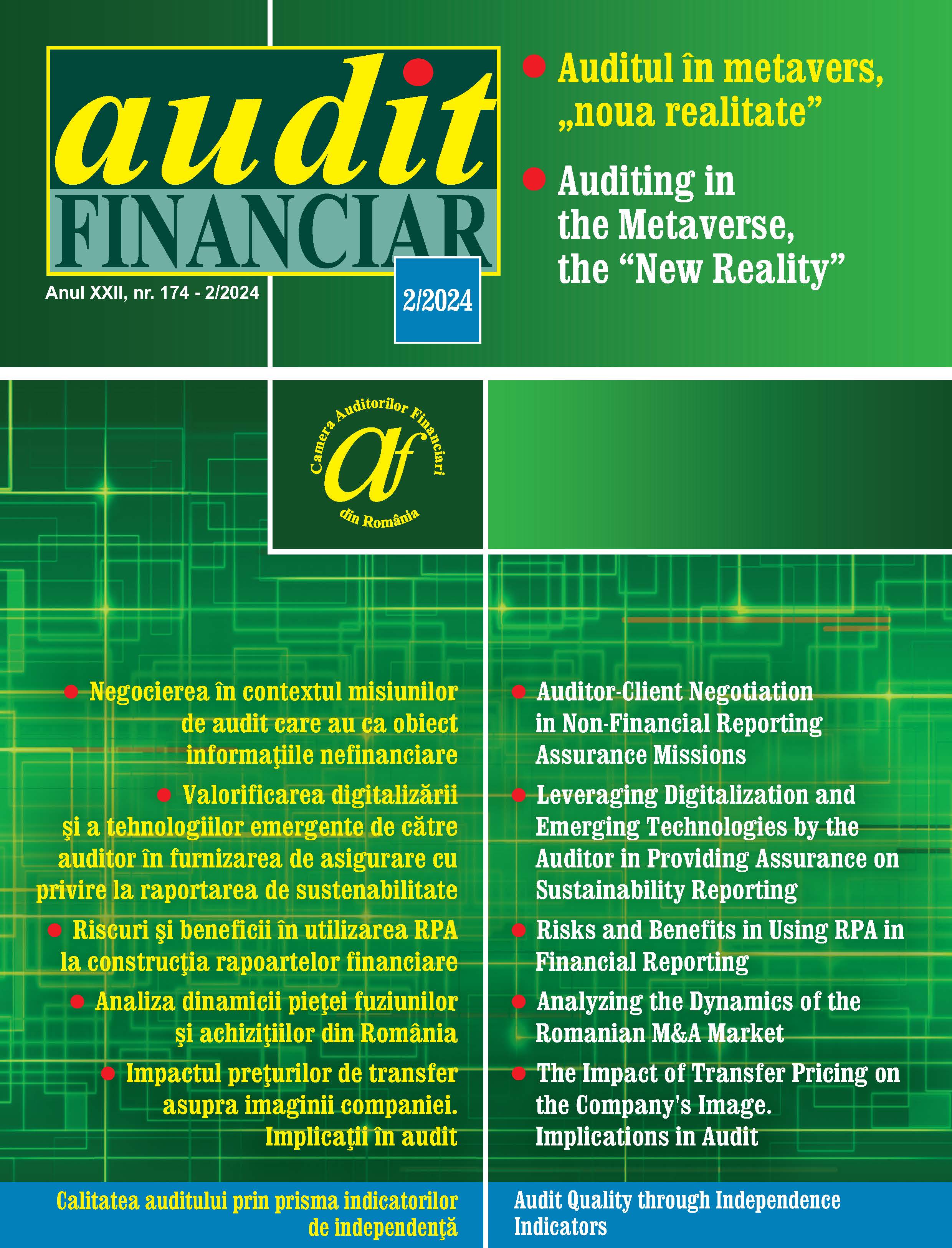„Sustinand sustenabilitatea sustenabila”: Valorificarea digitalizarii si a tehnologiilor emergente de catre auditor in furnizarea de asigurare cu privire la raportarea de sustenabilitate
“Sustaining the Sustainable Sustainability”: Leveraging Digitalization and Emerging Technologies by the Auditor in Providing Assurance on Sustainability Reporting
Author(s): Delia DeliuSubject(s): Economy, Accounting - Business Administration, ICT Information and Communications Technologies
Published by: Camera Auditorilor Financiari din România
Keywords: financial audit; auditing sustainability reporting; emerging technologies; ESG; sustainability; CSRD; digitalization; Blockchain; Internet of Things; Artificial Intelligence;
Summary/Abstract: In today's rapidly evolving world, the importance of sustainability and circularity has become more prominent than ever. Businesses and economies worldwide are recognizing the need to transition towards a circular model, where resources are used efficiently and waste is minimized. This transition necessitates changes across all sectors, including financial auditing. While the main object of financial audit is to provide an opinion on financial statements to ensure that it gives true and fair view of the accounts, the auditor will also need to assess an organization's sustainability by evaluating its environmental and social impact, resource efficiency, and circularity performance. It becomes more and more important that the financial auditor should provide a comprehensive assessment of the organization's sustainability practices, enabling stakeholders to understand its commitment to environmental responsibility, social equity, and economic resilience. Auditing sustainability reporting involves different challenges compared to those encountered in auditing financial statements. The independent audit report issued by the financial auditor on sustainability reporting plays an essential role in building confidence in the robustness of non-financial information, providing benefits such as: ensuring the credibility of ESG information presentations within the annual report; creating a positive impact on the company's reputation; strengthening the company's awareness of material ESG risks and facilitating the improvement of internal systems, processes and controls and the company's performance in the ESG area; better positioning of the company in ESG rating rankings. Hence, auditing sustainability reporting goes beyond financial metrics and includes non-financial indicators that reflect the organization's triple bottom line – people, planet, and profit. Henceforth, by expanding the scope of financial audits to incorporate sustainability metrics, audit companies can demonstrate their commitment to the circular economy and provide transparency regarding their clients’ environmental and social performance. Henceforward, auditing sustainability reporting not only enables stakeholders to make informed decisions, but also promotes accountability and incentivizes organizations to adopt circular practices. In this context, to effectively track, measure, and assess the sustainability performance of organizations, emerging technologies play a crucial role. This paper explores the role of emerging technologies in facilitating the transition of financial auditing towards a circular economy by employing a Reflexive Thematic Analysis (RTA). Analyzing the literature on the subject is the first step in the process, which is followed by a reflective study of the underlying themes and their consequences for financial auditing procedures. Several important themes emerged, highlighting the benefits, difficulties, as well as moral and social ramifications of integrating modern technology. These themes draw attention to the topic's complexity and shed light on the opportunities and difficulties that come with incorporating emerging technologies into an audit engagement on sustainability reporting.
Journal: Audit Financiar
- Issue Year: 22/2024
- Issue No: 2(174)
- Page Range: 301-319
- Page Count: 19
- Language: English, Romanian

